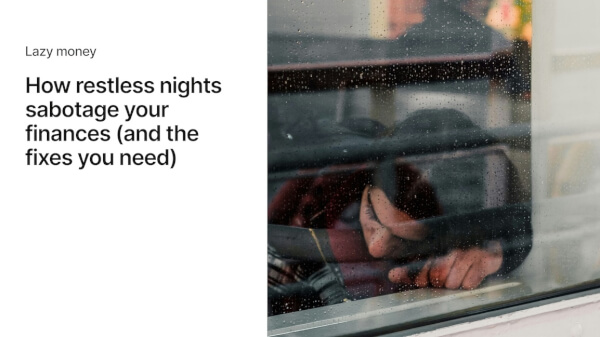Your Christmas Dinner in numbers
Tis the season to eat a lot of yummy food, so Wise has teamed up with the food-and-culture expert and Chef, Mallika Basu as part of our Christmas Without...

Hey there, my name's Anna, welcome to my article. While you travel through time in this piece, please bear in mind that this was written by me, not Wise. Now that’s the housekeeping done, join me on a little history tour. How exciting.
The UK’s National Archives is a history nerd's dream. Their catalogues, research, image library, podcasts and videos give people access to 1,000 years worth of history, for free. Now isn’t that just wonderful.
And thanks to The National Archives, you can now get an answer to the question that definitely plagues your mind all day, every day.
“How many animals, stones of wool and quarters of wheat could I have purchased throughout the centuries in the UK?”
Finally.
In honour of their 1,000 years of history, we’ve taken a look at what £1,000 would have bought you from 1300-1800 and what it would be worth nowadays.
(We need to preface this by saying that the conversion was put together in 2017, so the exact value may have shifted just a smidge.)
🙄No thanks, I’ll convert modern money like a normal person 🙄
£1,000 in 1300 would be worth roughly £709,029.8 nowadays. Well would you look at that?
With £1,000 back then, you would have been the proud owner of:
🐴1,176 horses
🐄2,222 cows
🐑 4,347 stones of wool
🌾3,846 quarters of wheat
Well, we hope you’re a fab baker because that is a lottttt of wheat.
£1,000 in 1400 would now be worth roughly £612,773.6 nowadays. Not as much as in the 1300’s but hey ho, here we go.
With £1,000 back then, you would have been the proud owner of:
🐴787 horses
🐄1,724 cows
🐑 5,555 stones of wool
🌾3,225 quarters of wheat
Old Macdonald had a farm would’ve been a really, really long song if he had this many cows and horses.
£1,000 in 1500 would be worth roughly £665,957 nowadays. You could laugh in the face of Netflix price increases. You could have kazillino accounts. The possibilities are endless.
With £1,000 back then, you would have been the proud owner of:
🐴709 horses
🐄2,631 cows
🐑 9,090 stones of wool
🌾2,500 quarters of wheat
£1,000 in 1600 would be worth roughly £137,876.8 nowadays. According to the archives, the sixteenth century underwent mass population growth and inflation. As a result the wealthy felt the need to really splash the cash, which means you would’ve been parading your ponies around like no tomorrow.
With £1,000 back then, you would have been the proud owner of:
🐴121 horses
🐄537 cows
🐑 2,941 stones of wool
🌾555 quarters of wheat
£1,000 in 1700 would be worth roughly £106,983,3 nowadays. The middle of the seventeenth century saw inflation and population growth level out, so you can put the ponies back in their pen.
With £1,000 back then, you would have been the proud owner of:
🐴185 horses
🐄240 cows
🐑 1,666 stones of wool
🌾500 quarters of wheat
We’re getting to a more normal amount of horses and cows now. Still excess, but we’re getting somewhere.
£1,000 in 1800 would be worth roughly £44,072.0 nowadays. The eighteenth century saw a lot of change, but you would’ve still been raking in the change nonetheless.
With £1,000 back then, you would have been the proud owner of:
🐴95 horses
🐄200 cows
🐑 1,111 stones of wool
🌾175 quarters of wheat
We’ve now come to the end of our currency tour throughout history. If you’re having issues sleeping, just count your cows and horses. If you’re having issues getting fair rates for your money, take a look at how you can save with Wise.
*Please see terms of use and product availability for your region or visit Wise fees and pricing for the most up to date pricing and fee information.
This publication is provided for general information purposes and does not constitute legal, tax or other professional advice from Wise Payments Limited or its subsidiaries and its affiliates, and it is not intended as a substitute for obtaining advice from a financial advisor or any other professional.
We make no representations, warranties or guarantees, whether expressed or implied, that the content in the publication is accurate, complete or up to date.

Tis the season to eat a lot of yummy food, so Wise has teamed up with the food-and-culture expert and Chef, Mallika Basu as part of our Christmas Without...

Millions of people around the world travel over Christmas, Hanukkah and Kwanzaa. In 2022 alone, 77,000 flights took off on Christmas Day globally. That may...

Salt-N-Pepa the iconic hip hop group = ❤️ love Salt and pepper, AKA the only seasoning I used as a university student = 🥲sigh Taking the Spice Girls advice...

The festive season is upon us, and it’s pretty much the same deal every year: Shop for gifts last minute Eat like a Sumo wrestler in training Travel to see...

We've teamed up with personal finance expert, Kia Commodore to help give your money a kick up the backside so you can go ahead and sleep. “Lazy Money” is what...

We've teamed up with personal finance expert, Kia Commodore to help give your money a kick up the backside so you can go ahead and sleep. “Lazy Money”...